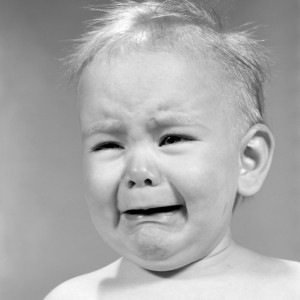The human body is a funny and fragile thing. No matter how many preventative measures are taken, a person can still be killed by a wide variety of things: vehicles, falling rocks, animals, explosions.
Just normal, everyday things.

Even simple things can kill you if you have too much of them. In particular, these things are food, water, air, and sleep.
Too much food causes you to have a heart attack. Or possibly pop.
Too much water will cause you to drown in it. Or possibly pop.
Too much air will totally make you pop.
Too much sleep means that your brain stops working. And while scientists haven’t proven it, it’s probably likely that it’ll make you pop.
But there are considerably less things in life that will kill you if you DON’T get enough of them.
In particular, those things are food, water, air, and sleep.
Sleep, by definition, is a suspension of voluntary bodily functions and the natural suspension, complete or partial, of consciousness.
Another way to look at it? Sleep is willingly passing out. It is telling your body “Alright, this has been fun, but I’m going to, COMPLETELY BY CHOICE, just stop doing stuff for a while.”

But what is most interesting about it is that sleep is required simply because it just….IS. It’s not like eating or drinking, where your body needs certain nutrients to keep functioning. It’s not like breathing, where your body needs oxygen to continue functioning. It’s not even like video games, where you body needs….you know….to blow stuff up.
No, sleep is required just because your body wants to sleep.
Scientists have studied sleep for years to understand why it happens. William Dement, who founded Stanford University’s Sleep Research Center, studied sleep for over 50 years. When asked about it, this was his reply:
“As far as I know, the only reason we need to sleep that is really, really solid is because we get sleepy.”

So how long should someone aim to willingly pass out? For adults, it’s somewhere between 6-8 hours.
Think about that: around one-third of your day is spent willingly unconscious. And let’s not forget that 6-8 hours is a random amount of time to spend in this state, particularly compared to some animals.
Giraffes only need a few minutes of real heavy sleep at a time. A lot of aquatic animals and birds only shut down half of their brain while sleeping, so that they’re never fully out. Many species of whales and dolphins don’t sleep for the entire first month of life.

In comparison, many carnivorous animals consume several days worth of meat with each meal, then sleep for days at a time. This doesn’t even account for hibernation, which is animals willingly passing out for literally months.

So when you look at the animal kingdom, 6-8 hours of sleep a night doesn’t seem all that strange anymore.
But it’s not the only option.

This act of sleeping for 7-8 hours a night and then staying awake for the rest of that time is known as a monophasic sleep cycle, because there is one period of the day designated for sleep. Normal people just call it “night time”.
Polyphasic cycles are systems that allow for multiple times of sleep per day. While not as common, tests have shown that often, if strictly adhered to, a person can be just fine while using this method. For example, taking 30 minute naps every four hours, and thereby only sleeping roughly three hours a day? Totally cool!
The problem with polyphasic cycles? Nobody uses them. Ever.

The life schedule is built around people sleeping at night, with business being open during the day and places actually expecting employees to work during those times. People who experiment with polyphasic cycles always quit after a while because they’re tired of not being on the same schedule as everyone else. Polyphasic cycles just aren’t cool.
But they might not be the ONLY alternative. You could attempt to sleep like Mitsutaka Uchikoshi.

Mitsutaka was leaving a BBQ party held out in the middle of nowhere when he apparently tripped and knocked himself out with nobody around to notice.
Take a moment to think about that entire situation. Okay, continue reading.
Typically, this would end very poorly. But somehow, in only 50 degree weather, Mitsutaka’s body temperature dropped to around 71 degrees and his metabolism nearly halted.
He was found three weeks later, and other than slight blood loss from the actual accident and some organ failure (probably to be expected when you drop your body temperature 27 degrees), he is perfectly fine. His brain is undamaged, and he didn’t require any food or water.
That’s right: Mitsutaka Uchikoshi accidentally discovered human hibernation.

Scientists are now studying how to make this accident into an actual option in the war against willingly passing out.
So started planning ahead for your next three week nap.

Of course you would include a picture of a bear. OF COURSE.
DON’T JUDGE ME BY MY LOVE OF BEARS
nawce.
I assume this word is….Korean?
Reminds me of the Seinfeld episode where Kramer tried out polyphasic sleep and got tossed into the river by his mobster girlfriend.
YAY POLYPHASIC SLEEP.
Anyone who references Seinfeld is MORE than welcome here.
Is this why you binge-read my blog today?
GET. OUT! *shove to chest*
It’s not what it looks like, I swear!
That may be one of the single most awesometastic animated gifs I’ve ever seen.
I read this awhile back:
http://www.dustincurtis.com/sleep.html
Never got around to experimenting with it. I guess I was too tired.
I work with a pretty strict cycle in which I sleep around 6.5 hours a night and during the day really hate my life because I want to be back in bed.
Captions made me squirt milk out of my nose (and I wasn’t drinking milk). Good work.
I wonder if this works, the polyphasic sleep. I think I’ll try it tomorrow.
Two things:
1. Let me know how that works, though I can imagine the first day would be the sleep equivalent of getting hit by a truck.
2. You weren’t drinking milk, yet snorted it out? You should PROBABLY go to the hospital.